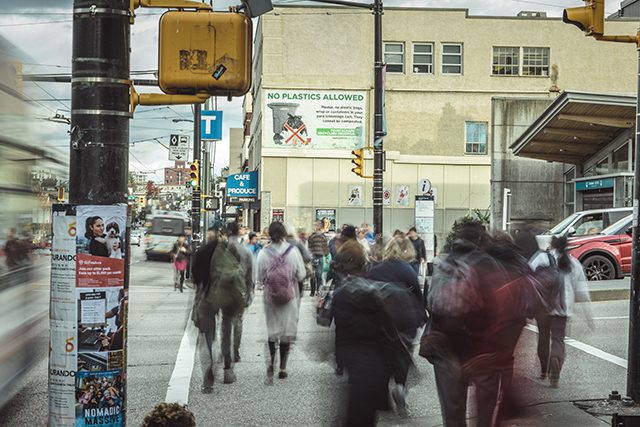TransLink to provide grants up to $50,000 to university researchers
TransLink to provide grants up to $50,000 to university researchers

Researchers at post-secondary institutions can now apply for up to $50,000 in research funding grants to explore new mobility issues and solutions.
The New Mobility Lab is our new engagement portal for post-secondary institutions, researchers, and university students.
New mobility is commonly defined as electric, connected, automated and shared transportation. Broadly, it can be defined as use of technology or other innovations to improve movement of people and goods, both in terms of consumer experience and overall efficiency.
TransLink aims to continuously explore, test, and implement innovative ways to improve mobility in Metro Vancouver and further three key goals:
- Enable seamless and efficient door-to-door mobility for people and goods;
- Promote safe, healthy, clean, and compact communities;
- Ensure affordable and equitable access for all.
We provide stable, multi-year funding towards a coordinated program of applied research aimed at answering new mobility related questions of relevance to us and our local government partners.
We are looking for applied research that has relevance to this region, so typically when we refer to new mobility we are looking at connected, automated, shared, and electric mobility,
The New Mobility Research Grant Program (NMRG) provides research grants of up to $50,000 to well-defined projects undertaken by B.C. post-secondary researchers and their partners.
NMRG projects may range from one year to two years in duration and can span a range of disciplines, including, engineering, planning and policy, urban design, computer science, environmental and resource science, business, psychology, sociology, and economics.
The NMRG Program is now accepting applications:
New Mobility Research Grant Program Information Package
New Mobility Research Grant Program Sponsored Research Agreement Template
All projects must relate to a new mobility theme and must have regional or local relevance.
.@TransLink to hire up to four #UBC sustainability scholars as part of pilot project to conduct research related to mobility and transportation planning: https://t.co/6WcIFiskig via @VancouverSun pic.twitter.com/clm83kKgmb
— UBC Media Relations (@ubcnews) September 5, 2018
UBC Sustainability Scholars Program
We’ll engage up to four UBC Sustainability Scholars on a pilot basis in 2018 to conduct research related to new mobility and other transportation planning topics. The final products from this pilot will be shared in 2019.
The changes that technology is undergoing, along with how people interact with each other in a shared space are aspects of new mobility.
NML falls under the umbrella of the TransLink Tomorrow initiative of collaborating with the private sector and academia to improve mobility in the region.
Earlier this summer, we launched the Open Innovation Call, the private sector equivalent of NML, which attracted 90 submissions on similar research parameters. Twice a year, we will come up with a theme — the first was enabling seamless, integrated door-to-door mobility for people — and open it up to anyone, including individuals, companies, non-profits, from B.C. and beyond, for submissions.
Awesome new grant program from @TransLink aimed at stimulating applied research on new mobility in Metro Vancouver. Could be of interest to folks at @UBCscarp @ubcVSE @UBCengineering @ECEUBC @UBC_CS @SFUurban @SFUcity @SFUresearch https://t.co/M8LVSy2NgF
— Adam Hyslop (@AdamHyslop) September 4, 2018
As the province’s transport agency, it is our job to better understand and be informed about new innovations across all sectors. The NLM program will give direction to our policies and help shape our programs better.
The funding for NLM was allocated in our 10-Year Vision which calls for advancing new mobility initiatives in the region.
To know more about this program and to take part, visit the New Mobility Lab section of the TransLink website.
Author: Tanushree Pillai





